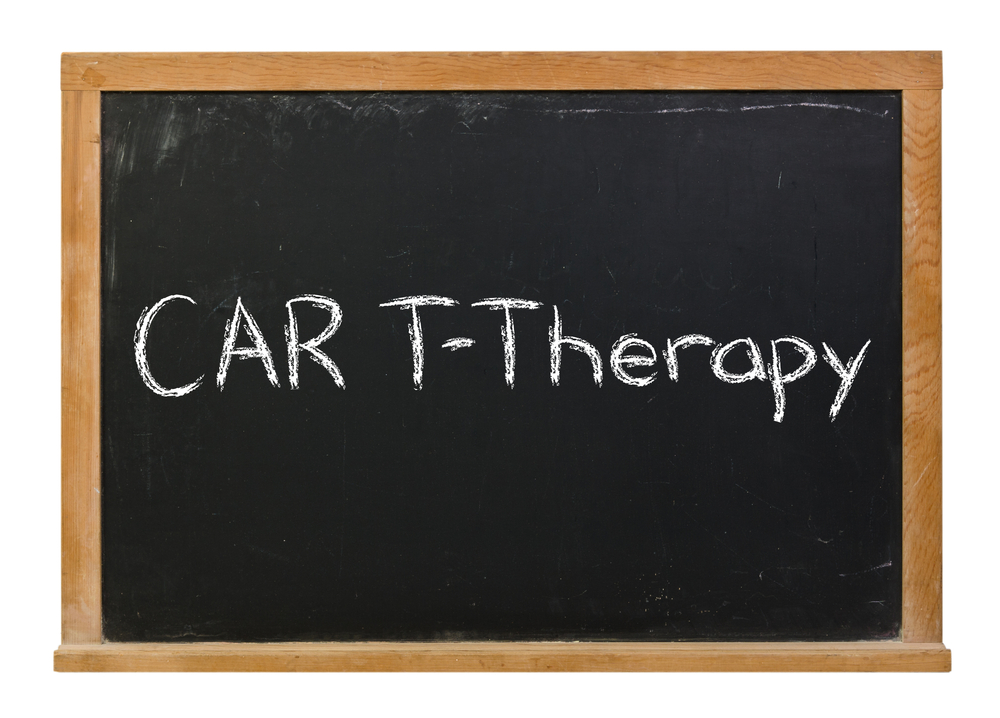CAR T-cell Therapy Combo Shows Promise in Treating Advanced Multiple Myeloma, Study Says

Using a combination of CAR T-cell therapies to target different cancer molecules appears to be a feasible and promising way of treating relapsed or refractory multiple myeloma, a study reports.
The findings of the study, “A combination of humanised anti-CD19 and anti-BCMA CAR T cells in patients with relapsed or refractory multiple myeloma: a single-arm, phase 2 trial,” were published in The Lancet Haematology.
Chimeric antigen receptor T-cell therapy, more commonly known as CAR-T cell therapy, is a type of immunotherapy in which a patient’s T-cells — immune cells with anti-cancer activity — are collected and re-engineered in the lab to recognize and eliminate cancer cells. The treated cells are then returned to the patient to fight the tumor.
Several types of CAR T-cell therapies exist, and target different molecules on cancer cells. B-cell Mature Antigen (BCMA) is one of the proteins found on the surface of myeloma cells that is considered one of the best targets for this therapy.
But some patients relapse shortly after being treated with BCMA CAR T-cell therapy, because the therapy fails to target and destroy all myeloma cells.
“Expanding the coverage of multiple myeloma cell targets and eliminating less-differentiated multiple myeloma cells might increase the activity of CAR T cells for patients with … relapsed or refractory multiple myeloma and improve the duration responses,” the investigators wrote.
CD19 is another protein found on the surface of some myeloma cells that are thought to be less-differentiated than those that contain BCMA. For this reason, CD19 may be an interesting target to complement anti-BCMA CAR T-cell therapies.
A group of researchers in China reported the findings of a Phase 2 clinical trial designed to evaluate the safety and activity of a combination of anti-BCMA and anti-CD19 CAR T-cell therapies in a people with advanced multiple myeloma.
The single-center, single-arm Phase 2 trial (ChiCTR-OIC-17011272) was carried out at the Affiliated Hospital of Xuzhou Medical University.
A total of 22 patients with a confirmed diagnosis of relapsed or refractory multiple myeloma were enrolled in the trial between May 2017 and January 2019. Of this group, 21 received an infusion of anti-BCMA and anti-CD19 CAR T-cells and were eligible for safety and activity analyses.
Before the infusion of humanized anti-CD19 CAR T-cells (1 million cells/kg) and murine anti-BCMA CAR T-cells (1 million cells/kg), patient had to complete a treatment course with fludarabine (three daily doses of 30 mg/m2, 5-3 days before infusion) and cyclophosphamide (one daily dose of 750 mg/m2, 5 days before infusion) to reduce their white blood cell levels.
The trial’s primary outcome was the percentage of patients responding to treatment. Therapy responses were assessed based on guidelines defined by the International Myeloma Working Group criteria.
Results showed that at a median followup of 179 days (about six months), 20 patients (95%) responded to treatment. Of these, nine (43%) had stringent complete responses, three (14%) had complete responses, five (24%) had very good partial responses, and three (14%) had partial responses.
Complete responses refer to total tumor eradication, while partial responses reflect a significant decrease in tumor size/burden, with no signs of cancer spreading. Stringent complete responses and very good partial responses are stronger types of complete and partial responses, respectively.
The most common adverse events reported included cytokine release syndrome (CRS), a systemic inflammatory response that can be triggered by certain medications, which was found in 90% of the patients. In most cases (86%), CRS was considered mild or moderate in severity.
The most common serious adverse events included blood toxicities, reported in 95% of the patients. Events considered severe or worse included low white blood cell counts (86%), anemia (62%), and low platelet counts (62%).
One person died of bleeding in the brain, caused by low platelet levels sustained over time, but the death was not directly related to treatment.
“In conclusion, a combination of anti-CD19 and anti-BCMA CAR T-cell therapy in patients with relapsed or refractory multiple myeloma is feasible, and the majority of patients achieved a response,” the researchers wrote.
However, a longer evaluation of treated patients is needed to assess the extent of benefits using this dual CAR-T cell therapy, and randomized studies are “warranted to elucidate the potential value and mechanism of the combination of anti-BCMA and anti-CD19 CAR T-cells,” they added.






